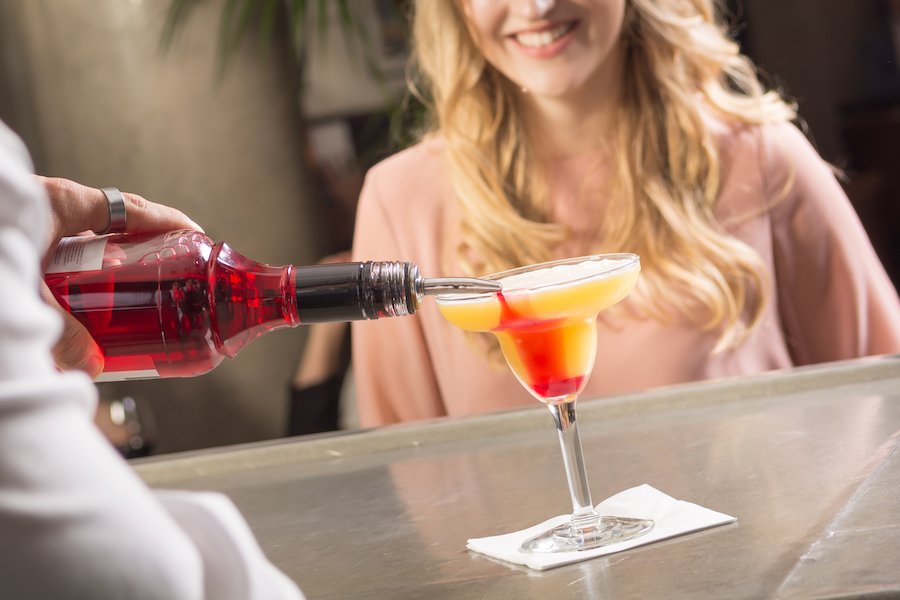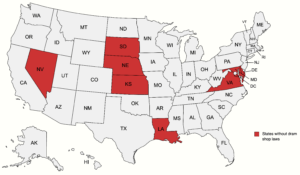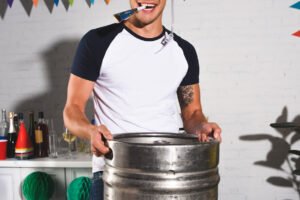In this section, our attorneys explain Nevada’s criminal laws and legal concepts, A to Z
Please note: Our firm only handles criminal and DUI cases, and only in California. We do not handle any of the following cases:
- civil matters
- CCWs or gun right restoration
- labor
- family law
- immigration
- landlord/tenant
- harassment
- restraining orders
And we do not handle any cases outside of California.
Call Us NowNevada dram shop and social host laws for serving alcohol to minors
Posted on

In Nevada, alcohol vendors (“dram shops”) such as bars, restaurants, package stores, and casinos are not civilly liable for any injuries if a customer they serve alcohol to then gets into an intoxication-induced accident. It does not matter if the customer was under 21.1
Nevada laws are stricter for “social hosts,” who are ordinary people who serve alcohol to friends or other guests. If they knowingly give alcohol to a person under 21 – or let a person under 21 drink alcohol on their property – then they are liable for any injuries that underage person causes while intoxicated.2
However, both alcohol vendors and social hosts face misdemeanor charges for knowingly supplying alcohol to people under 21 whether they get into an accident or not. Misdemeanors carry up to six months in jail and/or $1,000.3
Nevada dram shop laws
Many of the DUI crashes and other alcohol-fueled accidents I see involve people who recently drank at a bar or restaurant. However, Nevada does not have dram shop laws.
This means any victims injured in these accidents cannot recover money from the alcohol vendor(s) that served the alcohol.4 It does not matter:
- the age of the customer who caused the accident, even if they were under 21; or
- how much time elapsed between the customer being at the alcohol vendor and getting into the accident.
Example: Tom uses a fake ID to get into a Las Vegas bar, where he downs six beers. Then in the bar’s parking lot, he drunkenly backs into a pedestrian. The pedestrian can sue Tom for personal injury but not the bar. It makes no difference that Tom was underage or that the crash occurred right outside the bar.
Nevada is one of eight states without dram shop laws:

Therefore alcohol vendors in the other 42 can be held civilly liable if their customers cause any injuries due to being inebriated.
Nevada social host laws
I also see a lot of DUI crashes and alcohol-fueled accidents that involve people who just left a house party where alcohol was served. “Social hosts” who serve alcohol are civilly liable for any resulting injuries only if:
- the accident was caused by an underage person (under 21 years old), and
- the social host knowingly provided that underage person alcohol or let them drink alcohol on their property.
Therefore if the person the social host served alcohol to was an adult 21 or older, the social host has the same protections as alcohol vendors and would not bear any civil liability for any resulting accidents.5
Example: Max throws a party and serves alcohol to a 25-year-old friend and their underage friend who claims they are 25 and appears it. After the party, the 25-year-old and the underage friend get into separate DUI crashes. Even though Max provided them alcohol, Max is not liable for injuries caused by either crash because the 25-year-old was an adult, and Max did know that the underage person was underage.
Note that Nevada’s “social host” laws apply to any kind of gathering, whether it is a large party at a venue or an informal meetup at home.
Suing a social host
In Nevada, you have grounds to bring a personal injury lawsuit against a social host if:
- you were injured by a person under 21 years old, and
- the underage person’s intoxication caused the accident, and
- the social host knowingly gave them the alcohol or let them drink on their property.
You can recover such compensatory damages as:
- medical expenses from your injuries
- car/property repairs
- lost wages from being too injured to work
- loss of future earnings if you are too injured to work in the future
- pain and suffering
- attorney’s fees and costs
Since the social host knowingly gave underage people alcohol, the court may also agree to award you punitive damages to punish the social host for their behavior. Punitive damages are often much greater than compensatory damages.6
The statute of limitations to bring a personal injury lawsuit in Nevada is two years after your injury, which is less time than it sounds since it takes a while to craft a winning case.7

Under NRS 41.1305, social hosts are held to a stricter standard than alcohol vendors regarding underage drinkers.
The crime of providing alcohol to underage people
Nevada makes it a misdemeanor under NRS 202.055 to knowingly provide alcohol to people under 21. The punishment is:
- up to 6 months in jail and/or
- up to $1,000 in fines.
This law applies to alcohol vendors and social hosts: The only people who can lawfully give underage people alcohol are their:
- parents,
- guardians, or
- physician.
In my experience, the best defense to a NRS 202.055 charge is to claim you did not know the person was underage. As long as a reasonable person in your position also would have thought they were at least 21, then criminal charges should not stand.8
Additional resources
- Social host liability for minors and underage drunk-driving accidents – Journal of Health Economics.
- The Dram Shop: Closing Pandora’s Box – Indiana Law Review.
- Preventing Alcohol-Related Injuries: Dram Shop Liability in a Public Health Perspective – Washington State University Law Review.
- Reefer Madness: How Non-Legalizing States Can Revamp Dram Shop Laws to Protect Themselves from Marijuana Spillover From Their Legalizing Neighbors – Boston College Law Review.
- Dram Shop Liability–A Judicial Response – California Law Review.
Legal References
- NRS 41.1305. (Alcohol vendors sued to go by the term “dram shops” since “dram” is a unit of alcohol.”
- Same.
- NRS 202.055. See also: Bell v. Alpha Tau Omega Fraternity, Eta Epsilon Chapter (1982) 98 Nev. 109; Garcia v. Sixth Judicial Dist. Court (2001) 117 Nev. 697; Yoscovitch v. Wasson (1982) 98 Nev. 250; Raggio v. Bryan (1960) 76 Nev. 1.
- See note 1.
- Same.
- Same.
- NRS 11.190.
- See note 3.
About the Author

Neil Shouse
A former Los Angeles prosecutor, attorney Neil Shouse graduated with honors from UC Berkeley and Harvard Law School (and completed additional graduate studies at MIT). He has been featured on CNN, Good Morning America, Dr Phil, The Today Show and Court TV. Mr Shouse has been recognized by the National Trial Lawyers as one of the Top 100 Criminal and Top 100 Civil Attorneys.

